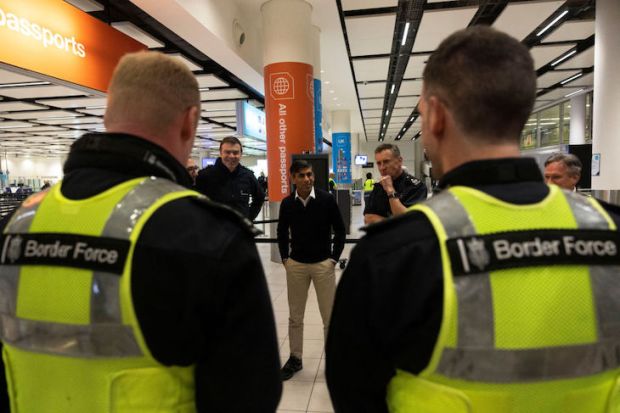There is a school of thought, expressed by Fraser Nelson here this morning, that the Prime Minister’s Tory opponents have shot their bolt too soon, that they should have waited for a couple of by-election defeats and for the emergence of a clear front-runner to replace Boris Johnson, before sending in their letters of no confidence. This analysis is right in that Johnson will very likely gain more votes that MPs vote against him this evening. Whether that really amounts to ‘winning’ is another matter. Historic precedence suggests that Keir Starmer is correct when he asserts that today’s confidence vote marks the beginning of the end for the Prime Minister.
Since 1974, Conservative leaders have faced leadership challenges/votes of confidence on six occasions. On only one of those – John Major in 1995 – did the leader in question survive to fight another general election, and we all know what happened then: he went down to the heaviest Conservative election defeat in a century.
Of the others, Edward Heath was defeated by Margaret Thatcher in the first ballot of a leadership election in 1975. Mrs Thatcher saw off her ‘stalking horse’ challenger, backbench MP Sir Anthony Meyer to 314 to 33 votes in December 1989, only to face a more serious challenge from Michael Heseltine less than a year later – which she won by 204 to 152 votes, but at the cost of losing her authority. She resigned 36 hours later. Iain Duncan Smith lost a vote of confidence by 90 votes to 75. Theresa May won her confidence vote by 200 votes to 117 in December 2018, but was gone six months later.
It is hard to escape the conclusion that once a Tory leader has lost sufficient confidence so as to provoke a leadership challenge, a smell of death has settled around them. Under the rules, if Boris Johnson wins this evening we will not be able to have another formal vote of confidence for 12 months, but that will hardly put an end to the plotting any more than it did in Theresa May’s case. The matter will then be handed over to the proverbial men in grey suits just as it was with Theresa May – who soon found herself having to proffer her resignation as a carrot in order to try to win Brexit votes, unsuccessfully. The coup de grace was delivered by Sir Graham Brady when he ‘sought clarification’ as to when she would resign.
Is there anything to suppose Boris Johnson can thwart precedent and win tonight’s vote and go on to win a general election, too? In many ways he starts off in a poorer position than did his predecessors, neither of whom had been accused of breaking the law or misleading the Commons. A thumping majority was not enough to save Mrs Thatcher. Boris Johnson can no longer claim to have more support among the public than among backbench Tory MPs – the booing at Friday’s Jubilee thanksgiving service has been interpreted by many as a vote of acclamation against him. Remember, by contrast, how he drew cheers – and George Osborne boos – at the Olympics ten years ago.
Any reasoned assessment of the Prime Minister’s chances would conclude that he will have an extremely difficult task surviving this challenge, and this if the end does not come this evening it is very likely to come at some point over the coming months.
Got something to add? Join the discussion and comment below.
Get 10 issues for just $10
Subscribe to The Spectator Australia today for the next 10 magazine issues, plus full online access, for just $10.




















Comments
Don't miss out
Join the conversation with other Spectator Australia readers. Subscribe to leave a comment.
SUBSCRIBEAlready a subscriber? Log in